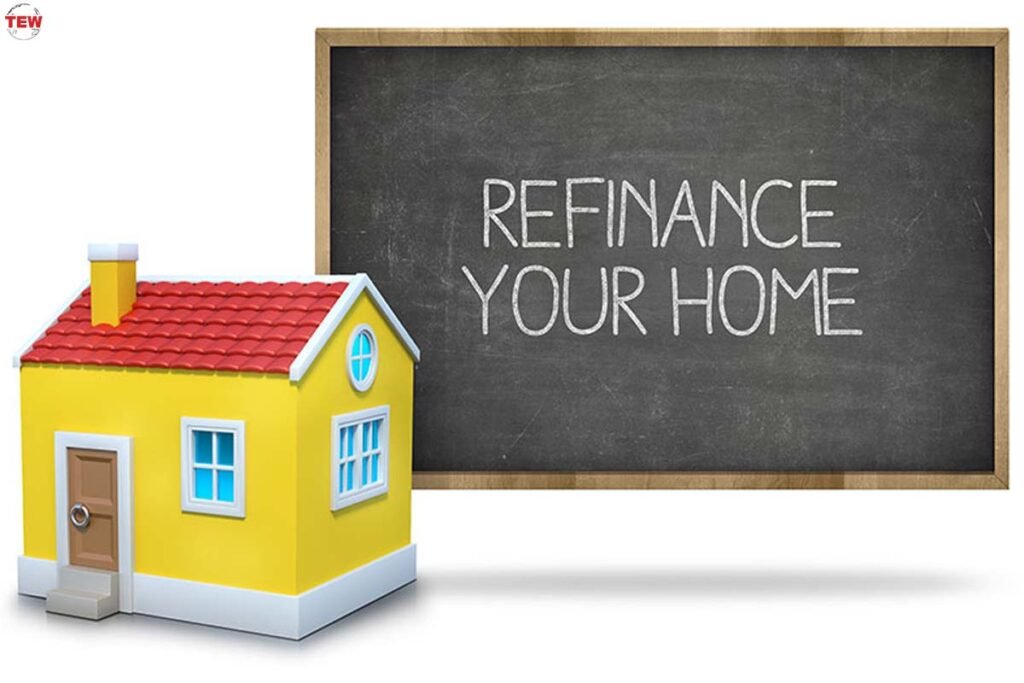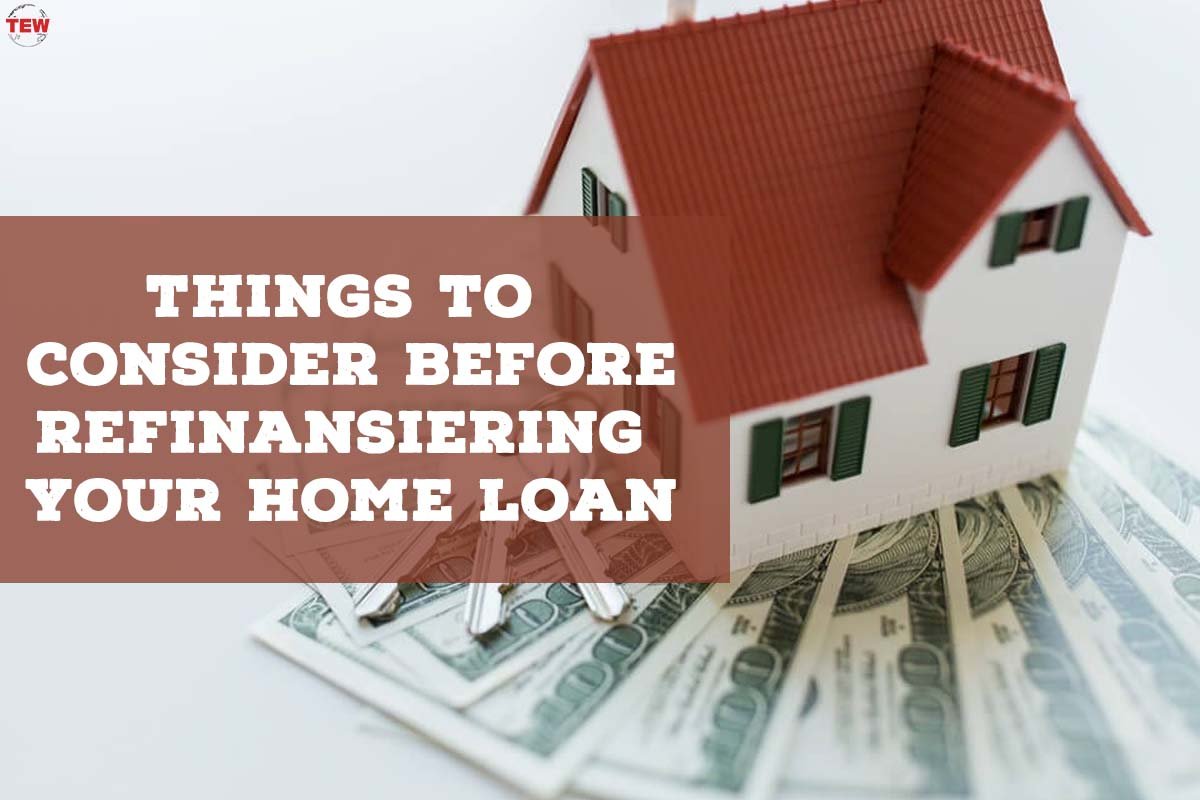A mortgage refinance could be a good choice if you want to either reduce your monthly payment or pay off your debt sooner.
Refinancing refers to the process of swapping an existing mortgage for a new one with conditions that are more agreeable to the borrower. There are a number of advantages to refinancing, but there are also some disadvantages to be aware of. The most significant of these disadvantages is the expense of the transaction.
It’s important to know what to expect from a refinancing before deciding whether or not it’s worth it, as the expenses may outweigh the benefits depending on your specific situation.
Before beginning the refinancing process, you should have a firm grasp of what to expect ;
1. What does Refinancing your mortgage mean?
It’s possible that refinancing a mortgage could help homeowners reach their objectives. Refinancing can help you do this by switching to a new mortgage with a better interest rate or a longer term. One or both of these options could be considered.
Because of the magnitude of the financial ramifications involved, deciding to refinance a home is not a choice that should be rushed.
By going with this option, your new lender will take over the payments on your old mortgage and offer you a new mortgage to replace the one paid off. The primary motivation for consumers who want to refinance is to reduce their monthly payment. However, in order to pay off their mortgage debt more quickly, some people prefer to refinance from a longer mortgage term to a shorter one.

Second mortgages are obtained in a different way than first mortgages are refinanced. You can use the equity you’ve built up in your house as collateral for a second mortgage and use the proceeds to fund your financial needs. When you refinance your mortgage, you are essentially getting a whole new loan, therefore the terms should be more favorable. You can look into refinansiere.net to find out more!
2. What else to know?
Once you’ve made the decision to refinance your property, there are a few things you’ll need to do to get the ball rolling. When you’ve made your decision, you can move on to the following stage.
To begin, you should know some fairly basic numbers. Your credit rating is crucial since it will be used to determine the interest rate you qualify for. Find out how much money your home is currently worth as the second stage. You can do this by exploring the many real estate websites out there.
The next step is to compare mortgage interest rates from several lenders. Having settled on a rate that works for you, the next step is to compile all paperwork related to your mortgage.
Pay stubs, bank statements, and whatever else your lender deems necessary are all examples of such documentation. Your lender will give you the option to lock in your rate after what seems like an eternity. The closing costs aren’t the only expenses you’ll incur, so it’s important to make sure you have enough money to cover things like property taxes and other fees.
3. What are the benefits?
The desire to get a mortgage at a more manageable interest rate is a primary motivation for many homeowners to pursue mortgage refinancing. One of the key benefits of mortgage refinancing is this. To achieve the goal of a lower overall interest rate, some people go so far as to purchase points.
In practice, this amounts to a one-time payment in exchange for a permanent reduction in the membership fee. The total cost of buying your home will go down if the interest rate you borrow at goes down, because your monthly payment will go down as well.
Making a smaller monthly mortgage payment also frees up cash that can be put toward meeting other financial obligations or investing in the future. Making lesser payments on your mortgage has this added advantage.
If you want to pay off your mortgage faster, refinancing could be a good choice for you. If you currently have a 30-year mortgage currently, refinancing to a 15-year mortgage could help you become the rightful proprietor of your home a lot sooner. Going about it this way will speed up the process of increasing your home’s worth through accumulating equity.

The only drawback is that you’ll have to put more money toward your expenses every month, which could put a strain on your finances if you’re not careful. Nevertheless, this might be avoided with careful budgeting.
Switching to a fixed-rate loan could be a smart financial decision if you currently have an adjustable-rate mortgage or want to merge a home equity line of credit (HELOC) alongside your primary mortgage. New loan rates are fixed in both scenarios. Variable-rate loans can save you cash in the near term, but they can become a burden if the interest rate changes and your monthly payment suddenly increases.
It’s crucial to remember this if the interest-only portion of your home equity loan’s term is coming to a close. When principle payments begin, it’s possible that your monthly outlay could climb significantly.
Depending on the gravity of the issue, this could make it very difficult for you to keep your cash reserves stable. You can safeguard yourself from unwelcome surprises by refinancing your mortgage into one with a fixed interest rate.
4. Do you think this is the best option?
Looking at the figures is your best bet when trying to decide whether or not to apply for a new loan for your home or business. Evaluate the potential savings and any associated costs to determine if the move is worthwhile. With higher closing costs, you’ll need more time to save up for the deal’s outlays.
The reason for this is that until then, your savings won’t have caught up to your spending. It may not be economically beneficial to explore this option if you plan to relocate within the next several years and there is no assurance that you will be able to recoup the expenditures involved with the refinancing.
know more on 3 Common Types of Financing Options for Your Investment Property
Conclusion
The conclusion is thus drawn. When we are at a loss for action, we often commit to studying the issue so that we can be certain in the future. Refinancing’s pros and cons will differ greatly from one person to the next, depending on their unique financial situation and long-term goals. You are already aware of this.
The first step in deciding whether or not to refinance your mortgage is to evaluate your motivations for doing so and whether or not doing so would be financially advantageous given your anticipated changes to your loan’s interest rate, the length of time you plan to keep the property, and the current interest rate environment.
Despite its convoluted reputation, refinancing a loan is actually a quite straightforward process. Furthermore, if the market conditions are favorable, this shift has the potential to yield substantial profits. Therefore, it is of the utmost importance to conduct research into the topic well before the event takes place.





